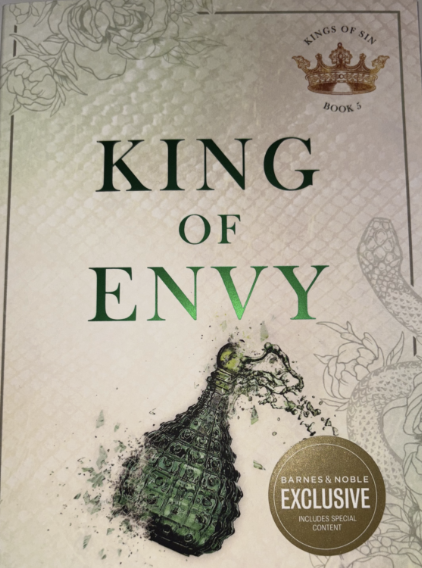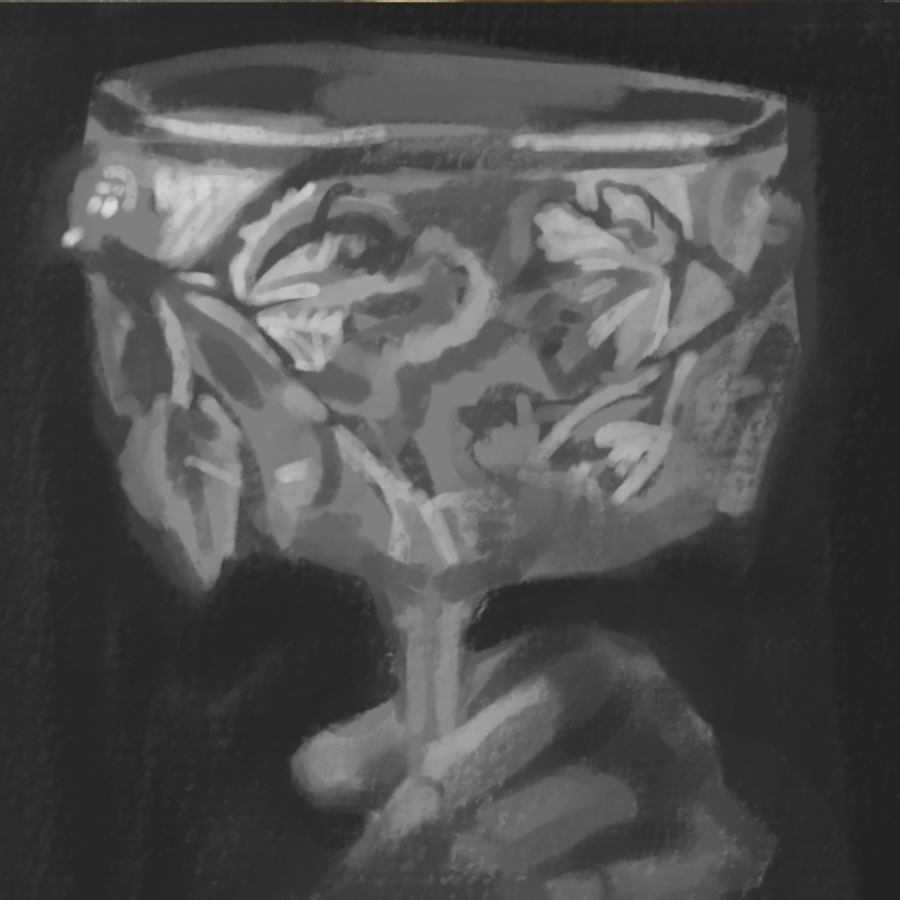The Witch of Aiaia: A story of magic and power
January 12, 2023
Seven years after publishing The Song of Achilles, renowned author Madeline Miller has released another novel with the same unique writing style, focusing on an untold point of view. Circe, published in 2018, is set during the Greek Heroic Age. It is an adaptation of numerous Greek myths, all of which are told from Circe’s perspective. The novel narrates Circe’s origin, her rise to power, her exile, and her encounters with other mythological figures.
The eldest child of the titan Helios and the naiad Perse, Circe is immediately deemed powerless and ugly. Her sister Pasiphaё and her brother Perses push her aside and label her as ugly, useless, and powerless. As her siblings leave the halls of the gods, Circe is left alone.
Eventually, Circe falls in love with a poor, mortal fisherman named Glaucos. When the reality of his mortality catches up to her, Circe searches for a way to make him immortal. However, when she finally succeeds, with Glaucos becoming a god, she finds that with his new divinity comes arrogance. Glaucos rejects Circe, instead choosing the nymph Scylla. In a fit of jealousy, Circe uses the magical flowers to make Scylla’s appearance match her ugly personality; she succeeds, but not in the way she had hoped. Scylla becomes a bloodthirsty six-headed monster that dives into the ocean. The complex bundle of emotions Circe feels- betrayed by the person who promised her eternal love- are beautifully written. All of these feelings that wash over the reader are conveyed in a way that feels just as wild and chaotic as a genuine experience, yet controlled enough for the reader to sympathize with Circe.
Miller’s writing is exceptional. She manages to portray things that would otherwise make Circe an obvious villain in a way where we, as readers, still understand and even support these actions. If the roles were reversed and Scylla was the protagonist, Circe would have been scorned. It is this unique perspective that draws many readers into the novel.
Circe confesses what she did to her father and for all the gods to hear, but she is not ashamed. For the first time in her life, she has their attention. Although Helios denies her claims to power at first, Aeёtes (Circe’s other brother, and the only sibling who was kind to her) returns and proves Circe’s claims of power to be true. Instead of her powers being celebrated, however, she is punished. Her entire life she has been shamed for being powerless, yet when it is finally proven that she does have powers, she is penalized. Refusing to let herself weep, she makes a life for herself on the island of Aiaia, finding peace without the cruel remarks of her family. Eventually, however, her exile grows lonely.
Eventually, her exile grows lonely, so when a mortal crew stumbles across her island she invites them inside to rest. She intends to put them to sleep with a spell, but when they learn that she lives alone- no father, no husband, nor brother to protect her- the captain of the crew assaults her. As punishment, she turns them all into pigs. Circe’s life seems to drop further into misery every time she begins to feel happy, and Miller does an incredible job conveying the emotions Circe feels whenever events take an unfortunate turn.
Another ship arrives, led by the hero Odysseus, and he charms Circe into allowing him and his crew to stay on her island. A romance unfolds between Circe and Odysseus, and after he leaves, Circe gives birth to his son, Telegonus. He becomes her pride and joy, but her happiness is short-lived, as she learns that the goddess Athena threatens the safety of Telegonus. She casts a spell over the entire island to protect him, but when Telegonus becomes a teenager, he begs Circe to leave the island. She denies his requests again and again but eventually gives in, obtaining the poisonous tail of the god Trygon and giving it to her son before sending him to Ithaca.
After a series of adventures and mishaps, Athena offers patronage to Telegonus, who accepts and embarks on his own heroic journey. After the loss of her son, Circe bargains with her father to negotiate an end to her exile, and after receiving her father’s permission, embarks on her own adventure and falls in love again. She makes herself mortal and spends the rest of her days traveling with her love, finally finding her happy ending.
Circe’s story in mythology is most well known as the villainous sorceress that was bested by Odysseus. Miller’s rendition of the myths add a newfound depth to the story. She is born into a life of criticism because she isn’t beautiful or powerful. When she does display her power, she is exiled for it. Circe overcomes every tribulation fate sends at her in her own way and in the end, she gets her happy ending. The novel encompasses the crescendo of joy and the pits of sorrow that Circe feels perfectly, blending it all together in a poetic way. I would recommend Circe to all audiences, even if they do not have prior knowledge of Greek mythology. The depth of the emotions portrayed and the representation of life’s unfair nature are sure to hold a place in the hearts of many.







































